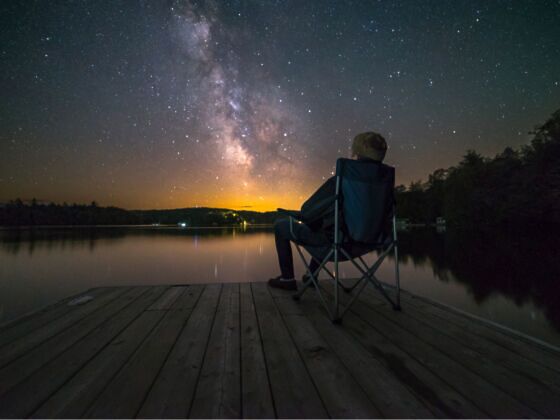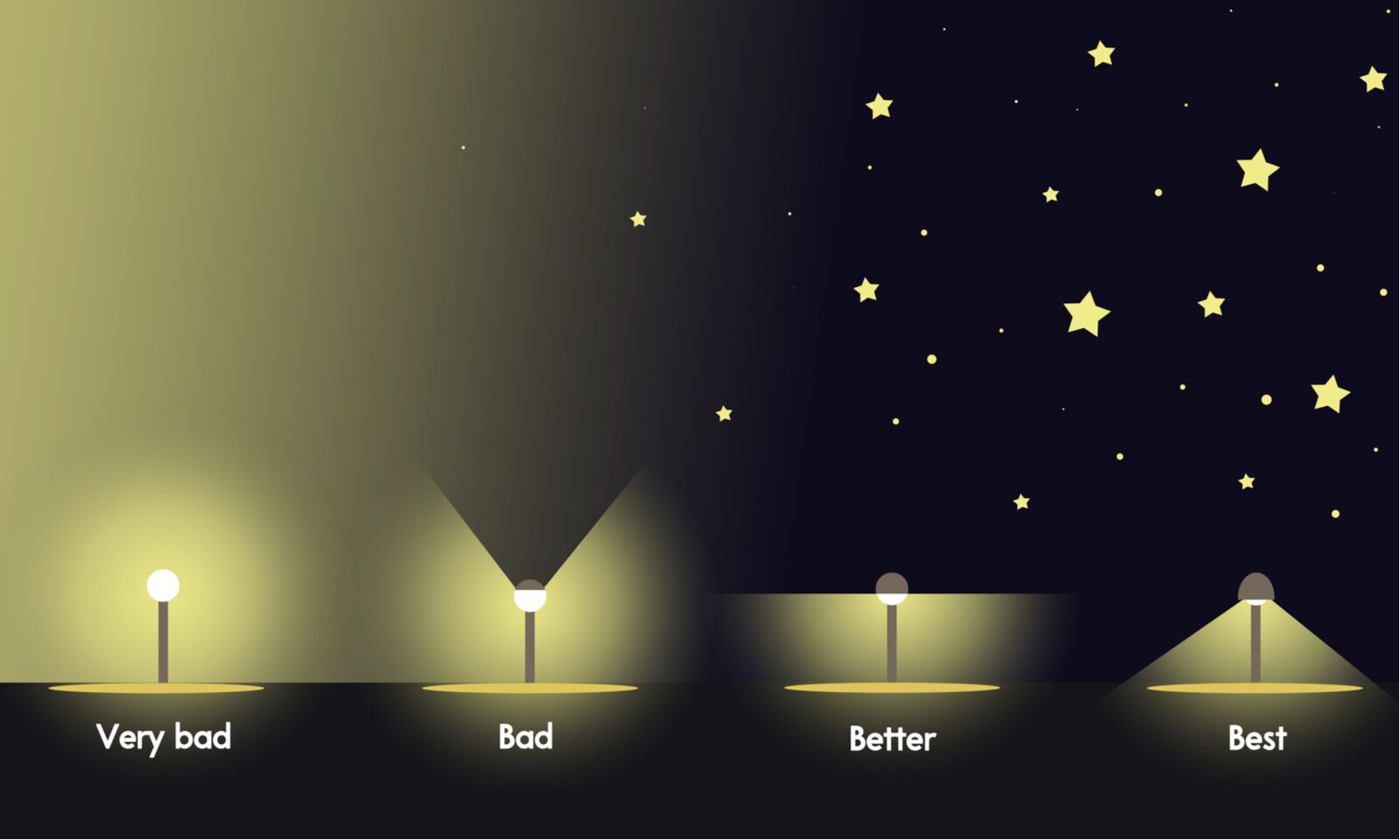When it comes to stargazing, unlike most situations in life, it has to be completely dark for you to see anything. That not only means turning off your own lights, but distancing yourself from city and neighborhood light pollution. And that’s easier said than done.
Light pollution refers to the excessive use of artificial light, whether from exterior and interior lights in buildings, glowing advertising signs, streetlights, outdoor lighting in homes, or pretty much anything that stays illuminated after dark. It might feel inconsequential, but light pollution severely restricts our ability to see stars, meteor showers, the Northern Lights, and whatever else might be up there. According to the International Dark Sky Association, “The fact is that much outdoor lighting used at night is inefficient, overly bright, poorly targeted, improperly shielded, and, in many cases, completely unnecessary.”

